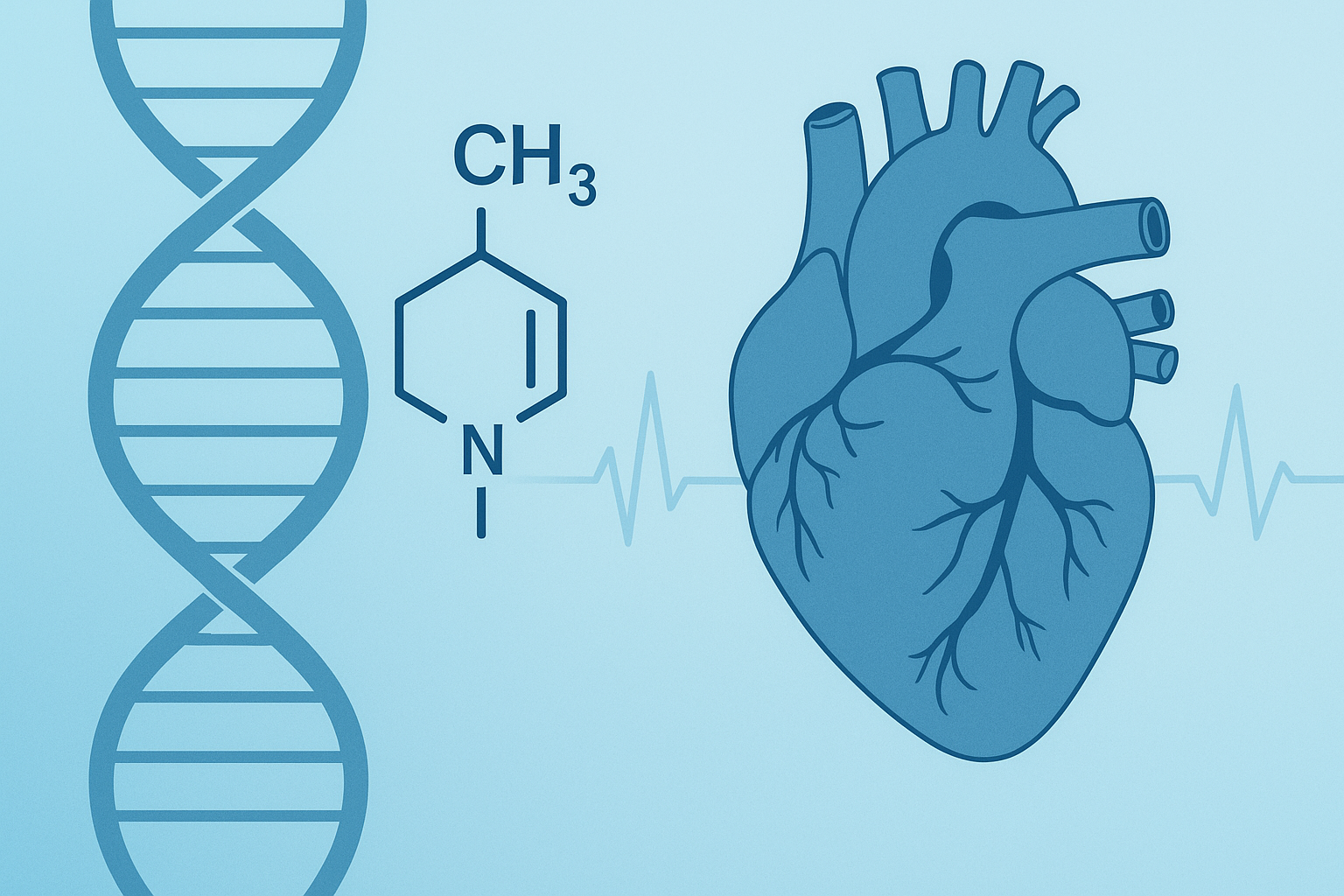
This study, led by Carbonneau et al., investigates the connection between cardiovascular health (CVH) and DNA methylation (DNAm), focusing on the American Heart Association’s Life’s Essential 8 (LE8) metric. LE8 incorporates four health behaviors (diet, physical activity, smoking, sleep) and four health factors (BMI, blood pressure, blood glucose, cholesterol) to quantify overall CVH. Despite its recognized value, over 80% of U.S. adults have poor or moderate LE8 scores.
Researchers analyzed over 11,000 individuals from six racially and ethnically diverse cohorts using epigenome-wide association studies (EWAS). They identified 609 CpG sites (DNA regions where methylation occurs) significantly associated with LE8 scores. These CpGs were enriched in immune and inflammation-related pathways and correlated with diseases like stroke, ischemic heart disease, chronic kidney disease, Alzheimer’s, and even pregnancy complications.
A new composite metric—the CVH DNAm score—was derived from 141 CpGs. This score was predictive of health outcomes: each standard deviation (SD) increase in the score corresponded with a 19%–32% reduced risk of cardiovascular disease, 28%–40% lower CVD-specific mortality, and 27%–45% lower all-cause mortality across different cohorts.
Mendelian randomization analysis further established potential causal links between specific CpGs and diseases, strengthening the biological relevance of these markers. For instance, hypomethylation at cg20544516 (near genes MIR33B and SREBF1) was linked to a lower risk of stroke.
Additionally, the findings point to the utility of certain CpGs as potential drug targets. Genes like SREBF1, ITGAL, and CPT1A, associated with these methylation sites, have known links to lipid metabolism and cardiovascular conditions, highlighting translational opportunities.
The study underscores DNAm’s role as both a biomarker and a potential mediator of CVH, suggesting that improving LE8 scores could lead to favorable methylation profiles and reduced disease risk. Importantly, this research provides a foundation for personalized prevention strategies and paves the way for future clinical applications leveraging DNAm in cardiovascular and systemic health management.
Source: https://www.ahajournals.org/doi/10.1161/CIRCULATIONAHA.124.073181

